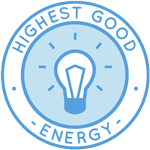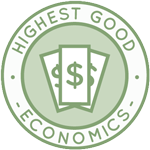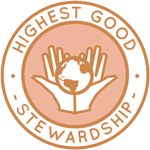Adaptable Solutions for Green Living – One Community Weekly Progress Update #210
Adaptable solutions for green living are needed if our goal is a planet capable of longterm support for the growing human population. If properly created, these solutions can also help humanity become conscientious stewards of our shared planet. We see open source and free-shared models as the fastest, most sustainable, and for The Highest Good of All approach to this.
- Here’s our project overview
- Here’s our world-change methodology
- Here’s how this becomes self-replicating
- Here’s how we are open source and free-sharing all the do-it-yourself designs

OUR MAIN OPEN SOURCE HUBS
Click on each icon to be taken to the corresponding Highest Good hub page.
One Community’s physical location will forward the movement of adaptable solutions for green living as the first of many self-replicating teacher/demonstration communities, villages, and cities to be built around the world. This is the April 2nd, 2017 edition (#210) of our weekly progress update detailing our team’s development and accomplishments:
Adaptable Solutions for Green Living
One Community Progress Update #210
Here is the bullet-point list of this last week’s design and progress discussed in detail in the video above:
ADAPTABLE SOLUTIONS FOR GREEN LIVING INTRO: @1:03
ADAPTABLE SOLUTIONS FOR GREEN LIVING HIGHEST GOOD EDUCATION: @2:00
- Completed the second 50% of the mindmap for the Diversity Lesson Plan (see below)
- Continued the process of a final proofreading and editing of all 52 lesson plans (see below)
- Continued creation of the renders for The Ultimate Classroom (see below)
- Guy Grossfeld created two final renders of the blue and and indigo rooms for The Ultimate Classroom (see below)
- Jennifer Zhou completed second round of edits for Learning Tools and Toys page (see below)
ADAPTABLE SOLUTIONS FOR GREEN LIVING HIGHEST GOOD FOOD: @3:20
- Edited and created instructions and an example in the “Recipe” section of the Food Bars page (see below)
ADAPTABLE SOLUTIONS FOR GREEN LIVING HIGHEST GOOD HOUSING: @3:50
- Completed another round updating the AutoCAD file for the Earthbag Village to the new standardized format (see below)
- Alena Thompson completed her 8th week helping with the Net-zero Communal Bathroom Designs (see below)
- Christian Ojeda completed his 8th week helping with the heat-recycling Communal Eco-shower and Vermiculture Bathroom designs (see below)
- Fernando Remolina and Lin Xu with their 14th week of work on the Vermiculture Bathroom development (see below)
- Ashwin Patil completed another round of edits and revisions to produce the Straw Bale Village search engine 2.0 and Highest Good Food search engine 4.0 (see below)
- Dean Scholz continued helping us create quality Cob Village renders (see below)
- Hamilton Mateca finished his 36th week helping with the Compressed Earth Block Village design and render details (see below)
ADAPTABLE SOLUTIONS FOR GREEN LIVING DUPLICABLE CITY CENTER: @6:06
- Created a new outside render of the City Center that includes the new structural support details (see below)
- Created new merged render from the updated outside image of the City Center (see below)
- Dipti Dhondarkar continued with her 33rd week of work on the lighting specifics for the City Center (see below)
- Jinxi Feng continued her research helping us create an in-depth washing machine sustainability analysis (see below)
- Ramya Vudi and Shubham Agrawal continued their work on the energy infrastructure for the City Center (see below)
- Renan Dantas continued with his 13th week working on the Duplicable City Center AutoCAD updates (see below)
- Jin Yu continued working on the concrete foundation design and tutorial details for the Duplicable City Center (see below)
- Adrienne Gould-Choquette continued working on the City Center heating and air conditioning load calculations (see below)
ADAPTABLE SOLUTIONS FOR GREEN LIVING HIGHEST GOOD SOCIETY: @8:19
- Created final generation of Amazon Smile and GoodShop promotional graphics to use for new open source and replicable annual social media strategy (see below)
- Sowmya Manohar joined the team and completed her first week of work on the The Highest Good Network (see below)
ADAPTABLE SOLUTIONS FOR GREEN LIVING SUMMARY: @8:59
- How you can most help us right now and how anyone can help
CLICK HERE IF YOU’D LIKE TO RECEIVE AN EMAIL EACH WEEK WHEN WE RELEASE A NEW UPDATE
YOU CAN ALSO JOIN US THROUGH SOCIAL MEDIA
ONE COMMUNITY WEEKLY UPDATE DETAILS
ADAPTABLE SOLUTIONS FOR GREEN LIVING HIGHEST GOOD EDUCATION PROGRESS
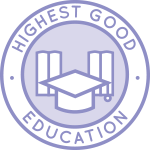 One Community is creating adaptable solutions for green living through Highest Good education that is for all ages, applicable in any environment, adaptable to individual needs, far exceeds traditional education standards, and more fun for both the teachers and the students:
One Community is creating adaptable solutions for green living through Highest Good education that is for all ages, applicable in any environment, adaptable to individual needs, far exceeds traditional education standards, and more fun for both the teachers and the students:
- Learn about the components: Education open source hub
- Learn how the components work together: How to use the Education for Life Program
This last week the core team completed the second 50% of the mindmap for the Diversity Lesson Plan, bringing it to 100% complete, as you can see here.
We also continued the process of a final proofreading and editing of all 52 lesson plans. This week we completed the Human Body Lesson Plan and the Information Lesson Plan. This brings us to 5 of 52 finished, which is 10% completion.
And the core team continued creation of the renders for The Ultimate Classroom, adding subject-related items to the red (Health/Nutrition) room, orange (English) room, yellow (Math) room, and green (Science) room.
Guy Grossfeld (Graphic Designer) also continued adding people and elements from the Learning Tools and Toys research we’ve done to create these two final renders of the blue and and indigo rooms from The Ultimate Classroom.
And Jennifer Zhou (Web Designer) completed her second round of edits and image additions and description for the Learning Tools and Toys page, as you can see here.
ADAPTABLE SOLUTIONS FOR GREEN LIVING HIGHEST GOOD FOOD PROGRESS
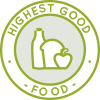 One Community is creating adaptable solutions for green living through Highest Good food that is more diverse, more nutritious, locally grown and sustainable, and part of our open source botanical garden model to support and share bio-diversity:
One Community is creating adaptable solutions for green living through Highest Good food that is more diverse, more nutritious, locally grown and sustainable, and part of our open source botanical garden model to support and share bio-diversity:
- Learn about the structures: Hoop House Hub | Aquapini & Walipini Open Source Hub
- See what we’ll be growing: Gardens & Hoop Houses | Large-scale Structures | Food Forest | TA
This week, the core team edited and created instructions and an example in the “Recipe” section of the Food Bars page, as you see here, bringing the page to ~21% completion.
ADAPTABLE SOLUTIONS FOR GREEN LIVING HIGHEST GOOD HOUSING PROGRESS
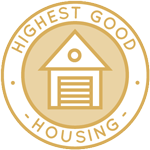 One Community is creating adaptable solutions for green living through Highest Good housing that is artistic and beautiful, more affordable, more space efficient, lasts longer, DIY buildable, and constructed with healthy and sustainable materials:
One Community is creating adaptable solutions for green living through Highest Good housing that is artistic and beautiful, more affordable, more space efficient, lasts longer, DIY buildable, and constructed with healthy and sustainable materials:
- Learn about: Our Upcoming Crowdfunding Campaign
- Learn about the different village models: 7 Sustainable Village Models
- Visit the open source portals for the first two: Earthbag Village OS Hub | Straw Bale Village OS Hub
This week the core team completed another round updating the AutoCAD file for the Earthbag Village (Pod 1) to the new standardized format shown here.
Alena Thompson (Mechanical Engineer) completed her 8th week helping with the Net-zero Communal Bathroom Designs. This week she updated the hatch and ladder, added new piping details, and researched cost and water saving specifics, all shown here.
Christian Ojeda (Mechatronic Engineer) completed his 8th week helping with the heat-recycling Communal Eco-shower and Vermiculture Bathroom designs. This week’s focus was autoCAD updates and adding in the urine separating toilet piping details to SolidWorks as shown here.
Fernando Remolina (Industrial Engineer specializing in Project Management) and Lin Xu (Mechanical Engineering Student) also continued with their 14th week of work on the Vermiculture Bathroom development. This week’s focus, as shown here, was on the pin and hinge systems to secure the emptying chamber to the pallet jack and assist with dumping.
And Ashwin Patil (Web Developer) completed another round of edits and revisions to produce the Straw Bale Village search engine 2.0 and Highest Good Food search engine 4.0. You can see some of this ongoing work here.
Dean Scholz (Architectural Designer) continued helping us create quality Cob Village (Pod 3) renders. Here is update 62 of Dean’s work. This weeks’ focus was finishing this view inside the Southeast wing looking South:
and further development of this loft view looking North:
Hamilton Mateca (AutoCAD and Revit Drafter and Designer) also finished his 36th week helping with the Compressed Earth Block Village (Pod 4) design and render details. This week’s focus was final placement of the front benches, planters, and brick patterns and beginning the addition of the back landscape details too, as shown here.
ADAPTABLE SOLUTIONS FOR GREEN LIVING DUPLICABLE CITY CENTER PROGRESS
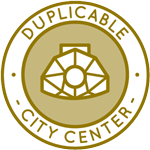 One Community is creating adaptable solutions for green living through a Duplicable and Sustainable City Center that is LEED Platinum certified/Sustainable, can feed 200 people at a time, provide laundry for over 300 people, is beautiful, spacious, and saves resources, money, and space:
One Community is creating adaptable solutions for green living through a Duplicable and Sustainable City Center that is LEED Platinum certified/Sustainable, can feed 200 people at a time, provide laundry for over 300 people, is beautiful, spacious, and saves resources, money, and space:
- Learn about this building and it’s function: Duplicable City Center Open Source Hub
This week the core team created a new outside render of the City Center that includes the new structural support details.
The core team also created this new merged render from the updated outside image of the City Center.
Dipti Dhondarkar, (Electrical Engineer) continued with her 33rd week of work on the lighting specifics for the City Center. This week’s focus was completing lighting analysis and placement for the 2nd floor Living Dome bedrooms and bathrooms, as shown here.
And Jinxi Feng (Environmental Consultant) continued her research helping us create an in-depth washing machine sustainability analysis. What you see here is her 23rd week of behind-the-scenes work on this area of the project. This week’s focus was researching and contacting industrial laundry machine providers.
Ramya Vudi (Electrical Engineer) and Shubham Agrawal (Electrical Engineer) continued their work on the energy infrastructure for the City Center. What you see here are a couple photos from the weekly collaborative calls and this week’s focus of beginning to write the micro-grid design and implementation tutorial.
Renan Dantas (Mechanical Engineer) continued with his 13th week working on the Duplicable City Center AutoCAD updates. This week’s focus was adding in the library furniture details, basement refrigeration and freezer units, bridge over the pond out front, urinals in all the bathrooms, and other design updates.
And Jin Yu (Structural Engineering Designer) also completed her 9th week working on the concrete foundation design and tutorial details for the Duplicable City Center. This week’s focus was integration of pages of feedback and updates to the column foundation and baseplate tutorials, as shown here.
And Adrienne Gould-Choquette (Mechanical Engineer) also finished her 13th week helping. This week’s focus was continuing the City Center heating and air conditioning load calculations by evaluating the City Center room by room with occupancy and use projections.
ADAPTABLE SOLUTIONS FOR GREEN LIVING HIGHEST GOOD SOCIETY PROGRESS
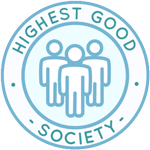 One Community is creating adaptable solutions for green living through a Highest Good society approach to living that is founded on fulfilled living, the study of meeting human needs, Community, and making a difference in the world:
One Community is creating adaptable solutions for green living through a Highest Good society approach to living that is founded on fulfilled living, the study of meeting human needs, Community, and making a difference in the world:
- Read the Highest Good society overview: Highest Good Society
- Learn about the model for fulfilled living and sharing: A Day in the Life
- Learn about the 4 economic models: RBE | For-profit | Non-profit | Entrepreneurship
- Learn about our open source community collaboration and management software: The Highest Good Network
This week the core team created the final generation of Amazon Smile and GoodShop promotional graphics. You can see these graphics here, showing a different graphic for each of these nonprofit fundraising options and for each of the times of year we intend to promote for support using the new open source and replicable annual social media strategy.
Sowmya Manohar (Software Engineer, Web Developer & Net Application Developer) joined the team and completed her first week of work on the The Highest Good Network. Her focus this week was learning about the program, outlining her intended development process, and drawing the application workflow.
AND WE PRODUCED THIS WEEKLY UPDATES BLOG – CLICK HERE TO SUBSCRIBE
FOLLOW ONE COMMUNITY’S PROGRESS (click icons for our pages)
INVESTOR PAGES
GET INVOLVED
CONSULTANTS | WAYS ANYONE CAN HELP | MEMBERSHIP
CLICK HERE FOR ALL PAST UPDATES
WHAT ONE COMMUNITY IS CREATING
One Community is creating a place to grow together and change the world together. We are creating a space that helps each other live in integrity with each other and the planet as we strive to be the greatest versions of ourselves. We do this by harmoniously respecting each other, nature, and the rest of our one shared planet.
Our goal is to demonstrate what we feel is the most sustainable, healthy, and fun environment we can create. A place based on compassion, kindness, and collaboration. This replicable community will serve as an example for what is possible.
Throughout our design process we are open sourcing and free-sharing everything needed for construction and replication. This includes what we call “Highest Good” approaches to food, energy, housing, education, for-profit and non-profit economics design, social architecture, fulfilled living, stewardship practices and more. We are creating these resources for implementation as individual components or complete developments called teacher/demonstration hubs. These hubs will help launch additional hubs as awareness and knowledge grow.
ADAPTABLE SOLUTIONS FOR GREEN LIVING BUILDING THE FIRST OF MANY
One Community will be the first teacher/demonstration hub. It will function as an experiential-learning model that facilitates mass participation to address humanity’s most pressing challenges through: A replicable model for expansion, building seven self-sufficient village/city prototypes, becoming the world leader in open-source sustainability solutions, and evolving and expanding ALL aspects of sustainable living.
 One Community
One Community